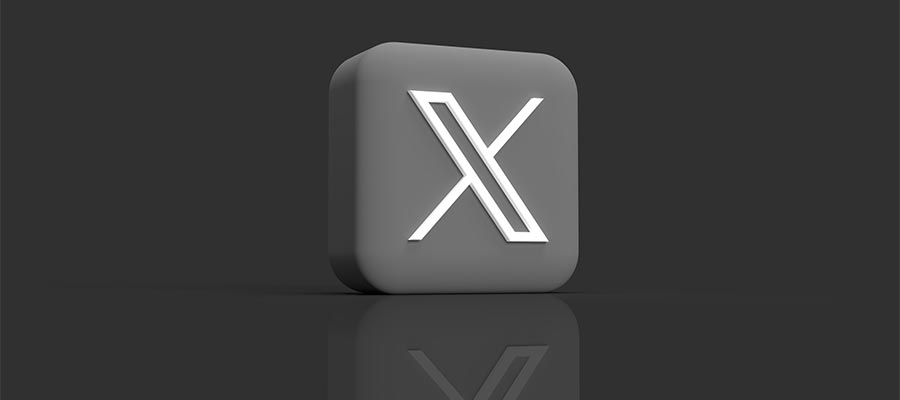Twitter has been my go-to social network for over a decade. I found community there. For all its faults, there are also benefits.
There are always interesting people to talk to – regardless of subject. It’s a place where I could talk about web design. But also a spot to follow my favorite sports teams. Or discuss new music.
The platform has offered a great place to connect professionally and personally. And it also provided portability. Embedded tweets and timelines were easy to implement. They facilitated the growth of one’s network.
But my heart has been weary ever since Elon Musk announced his intention to buy Twitter. And his post-acquisition actions haven’t helped. If anything, they’ve confirmed my fears.
I’m not the only concerned citizen. Other users have left the platform for the likes of Mastodon and Threads. I created accounts on those services – but haven’t used them.
I’ve stuck with Twitter – even through the awkward rebrand. But what about the many niche web design communities? Will they survive the turmoil?
Why Twitter and Web Design Go Together
Twitter has never had the mass appeal of Facebook. But its no-nonsense UI made it easier to connect with others. Users could quickly find and participate in niche communities.
That has certainly been the case for web designers. Twitter has been a great place to discover new tools. And there is no shortage of learning content. It has served our industry well.
What happens if the platform fizzles out? Niche communities can still exist on the web. And they can tie in with Fediverse-based services like Mastodon. But it’s still a more scattered landscape.
The beauty of Twitter is that all of your interests can live in one place. It can be overwhelming at times. But it brings people and content together in a unique manner.
More than any other platform, Twitter has been an online space for web designers. I hope we can keep it that way.

More than Just the Name Has Changed
I’m going to ignore the political discourse of Musk. That’s another post for another publication. However, I will focus on changes to Twitter. Particularly ones that I feel have been negative.
X Marks the What?
Elon Musk has a fascination with the letter X. I can’t pretend to understand him (I’ve always been partial to Y for some reason). But I digress.
As if this weren’t strange enough, the rebrand has drawn the ire of designers. Embedded tweets (if we’re still calling them that) now have the “X” logo on the upper right. It seems to indicate that a user can close the window. And no, it doesn’t work.
I can’t say if any of this makes business sense. But degrading the user experience (UX) isn’t productive. The design community may get a laugh out of the changes. But it doesn’t sit well in the long term.
And web designers may be stuck swapping out social sharing logos on the sites we manage. It’s not a way to ingratiate yourself with design pros.
So embedded tweets now have the “X” logo on the upper right. Looks like you’re supposed to click and close it. pic.twitter.com/tiYkI38DiL
— Eric Karkovack (@karks88) July 30, 2023
Self-Inflicted API Woes
Auto publishing to Twitter has long been a popular feature. WordPress users could write a piece of content and send it directly to Twitter via an API. It no longer works, thanks to API monetization efforts.
But that’s not the only self-inflicted wound. Embedded tweets also stopped working for a time. It was a move to battle content scraping. The functionality eventually came back.
Embedded timelines have also been rendered useless. They stopped working around the same time as embedded tweets. Calls to repair them have gone unanswered as of this writing. But some feeds have inexplicably come back to life.
Monetization is understandable. Stripping core functionality is unacceptable. It’s also a turnoff to those of us who serve clients. The platform will become more trouble than it is worth. If it hasn’t already crossed that threshold, that is.
All Manner of Annoyances
Twitter’s stability has also become a fiasco. Significant staff cuts may be to blame.
Recent months have seen numerous incidents. That includes users receiving messages that they’ve reached their tweet limit.
The service has been unusable at times. Users can’t rely on the platform. Thus, they’re unlikely to use it for anything important.

Why Have Users Stayed?
With all the uncertainty, it’s fair to wonder why anyone has continued to use Twitter. Web designers are a particularly curious case. I’ll include myself in that group.
The changes to the platform have undoubtedly irked web professionals. Advocates of the open web and accessibility have complained loudly. Yet members don’t appear to be leaving in droves.
I have noticed that some in the web design community have left. But most acquaintances have stayed. Why?
I can only speak for myself. But the idea of starting from scratch on another platform isn’t attractive. I’ve spent years connecting with people. Attempting to recreate that community elsewhere seems arduous.
In other words, I’ve been too lazy to move. Perhaps it’s due to my age. But I suspect there’s more to the story.
Leaving Twitter also means giving in to Musk. It seems that he wants to push certain users out the door. That’s the antithesis of other social networks. Then again, Musk is the antithesis of most business leaders. For me, staying is perhaps a small act of defiance. Why should I be the one to leave?
Musk may get bored and sell to a more amenable party. Here’s hoping that I’m more patient than he is.




